Europe’s state of climate VC

Europe’s state of climate VC — Slides for Planet Sustainability
Climate change is the biggest problem facing humanity in its history. But as dreadful as it sounds: this historical crisis offers the greatest investment opportunities ever. We Europeans run the risk of missing it — and putting the existence of all humanity at risk.

With the green new deal, we want to be the first continent to become climate neutral. And we will spend a lot of money on research to get there.

… and this is just the budget through Horizon, after already pushing ~30% of the Horizon 2020 budget into climate R&D.
All eyes are on Europe right now to deliver the vaccine that will bring us normality again.
And the fruits of our R&D focus are there. We are science leaders. In fact, when the world holds still in face of the pandemic, all eyes are on Europe right now and the currently most promising vaccines that could bring an end to this.
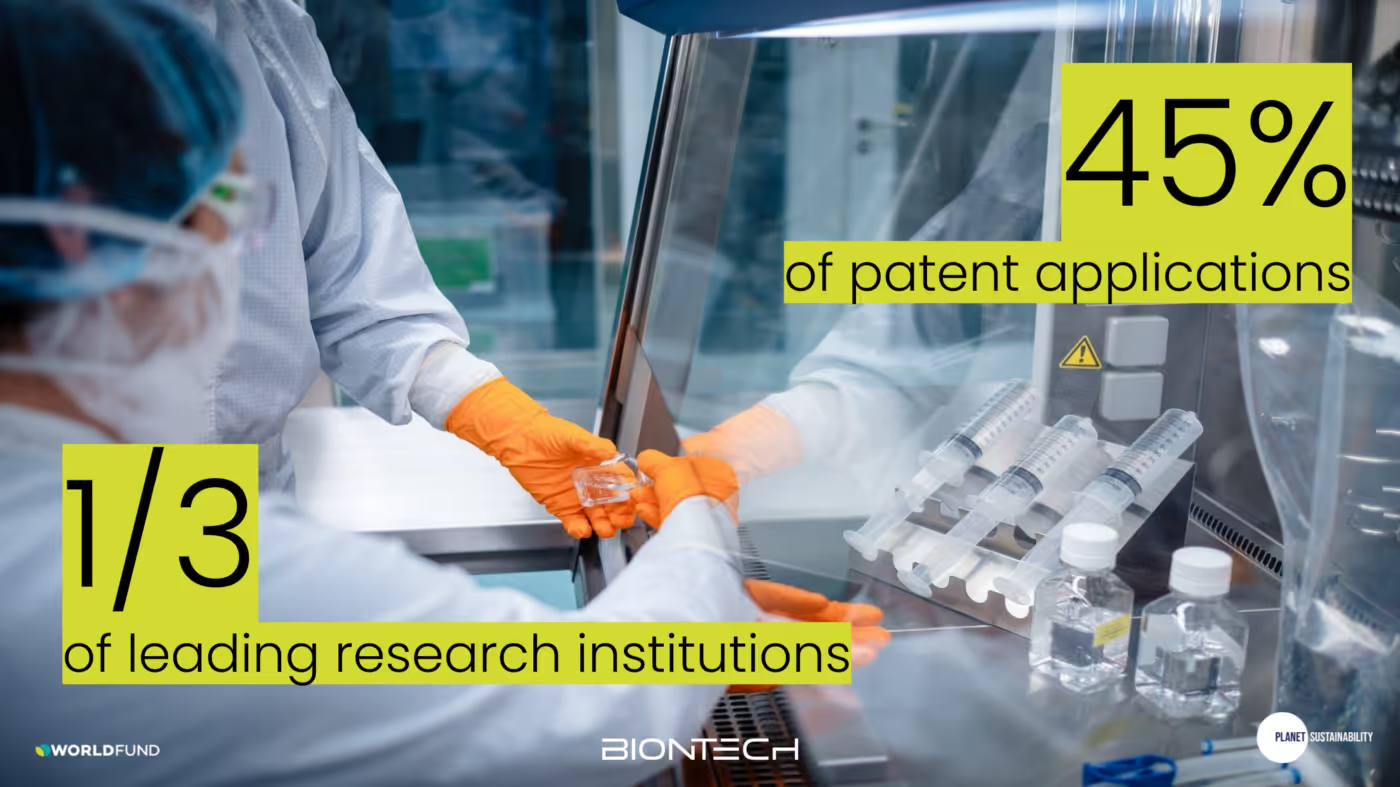
But we got to be careful. We have this huge pool of solutions, giving us a great opportunity to commercialize. Let’s not forget, that the lab-to-market step can benefit through catalytic capital. This is where actually the impact that could make the difference for our species will happen. What happens in the lab must NOT stay in the lab.

Luckily, the time is getting ripe for this. The market demand is becoming more and more apparent with more short-term corporate pledges and basically, the most influential companies in the economy starting to incorporate the market potential and risk potential of an unseen order of magnitude.

This means, that the asset class typically responsible for jumpstarting new markets, the venture capital industry, will lay their eyes (or rather their money) on climate ventures.
However, this might not be enough. Traditionally, venture capital was optimized for squeezing b2c software startups to bring the best returns to their LPs fast.
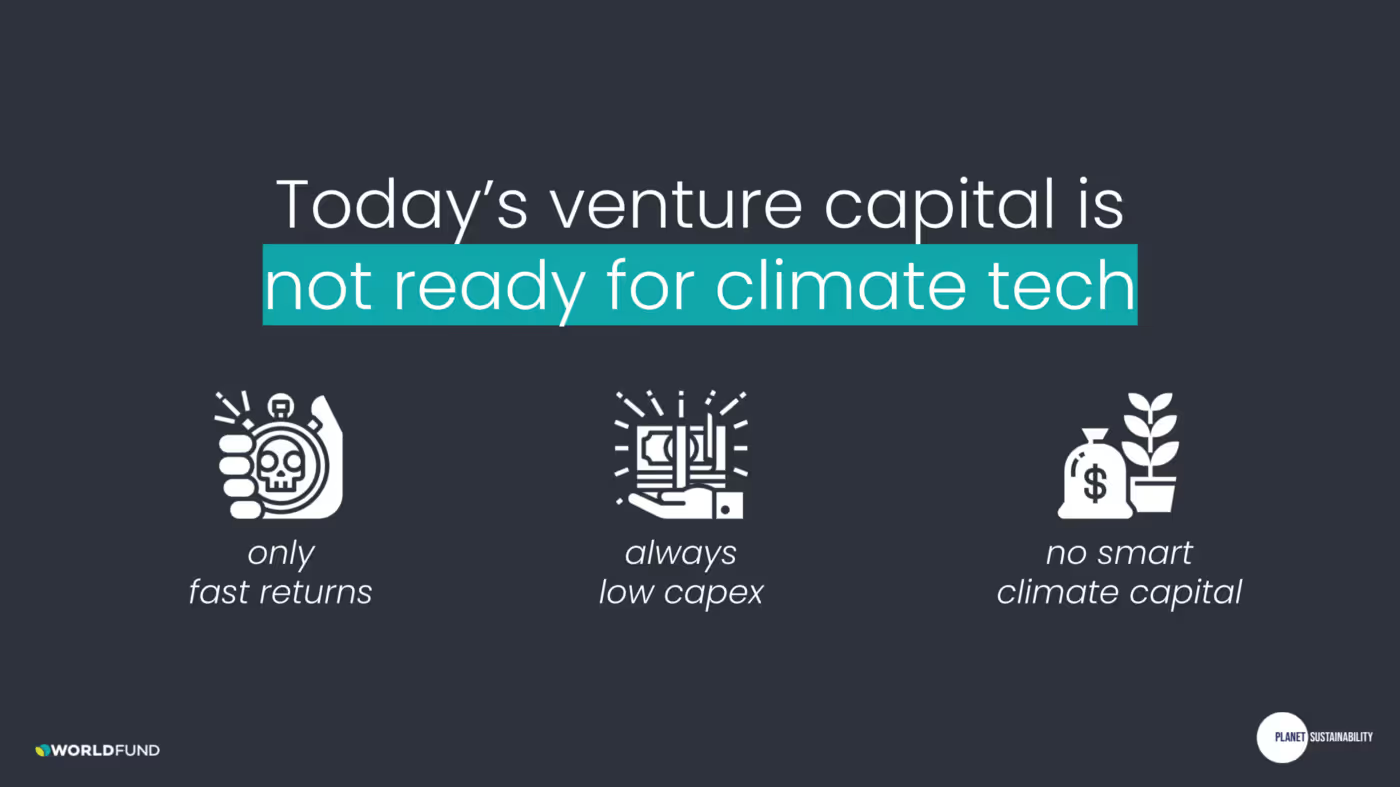
Today’s VCs need to change for the climate challenge. They need more flexible fund lifetimes, have deeper pockets, and leverage a great network from scientists to industry to support deep tech climate startups on their challenging journey.
The activity in Europe is underwhelming. Even in North America & China, where more climate VC dollars are deployed, are highly underrepresenting the multi-trillion opportunity within the VC space.
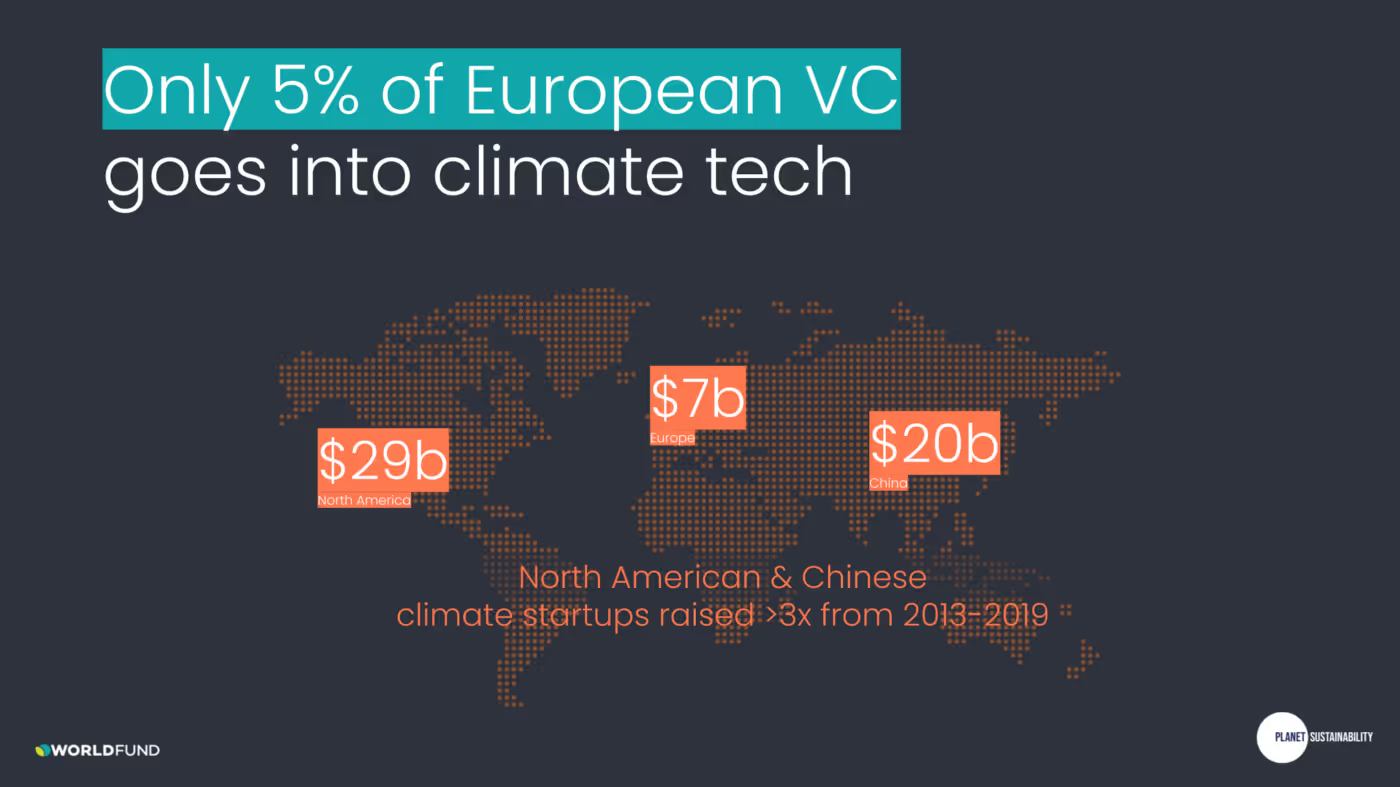
Europe’s lacking behind in more creative and more climate-effective VC approaches is reflected in the number of >$100m VC funds where North America is sevenfold up. Not just any VCs are driving this, it’s the Tier-1 VCs, further concentrating the power-law curve of VC success, as well as climate-first VCs, such as BEV with fund lifetimes of 20 years.
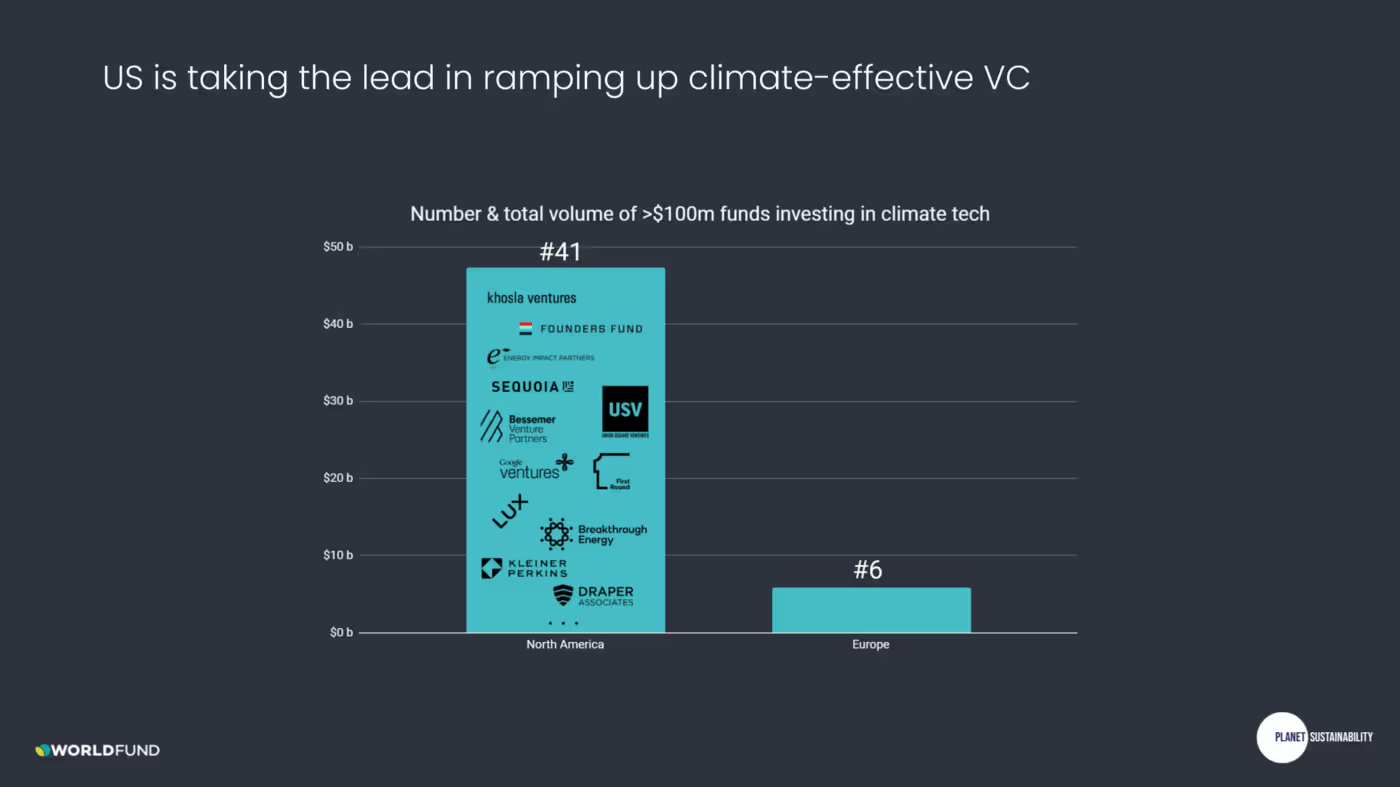
This is not a problem per se, I’m all in for faster change towards reducing the significant climate impact risks we are facing today. But looking at the trend, that capital invested in Europe is already almost up to a quarter by Silicon Valley VCs, it means that the US will have a big say in capitalizing and building our new economy. (Yes, venture-backed startups take 63% of the total public market cap!)
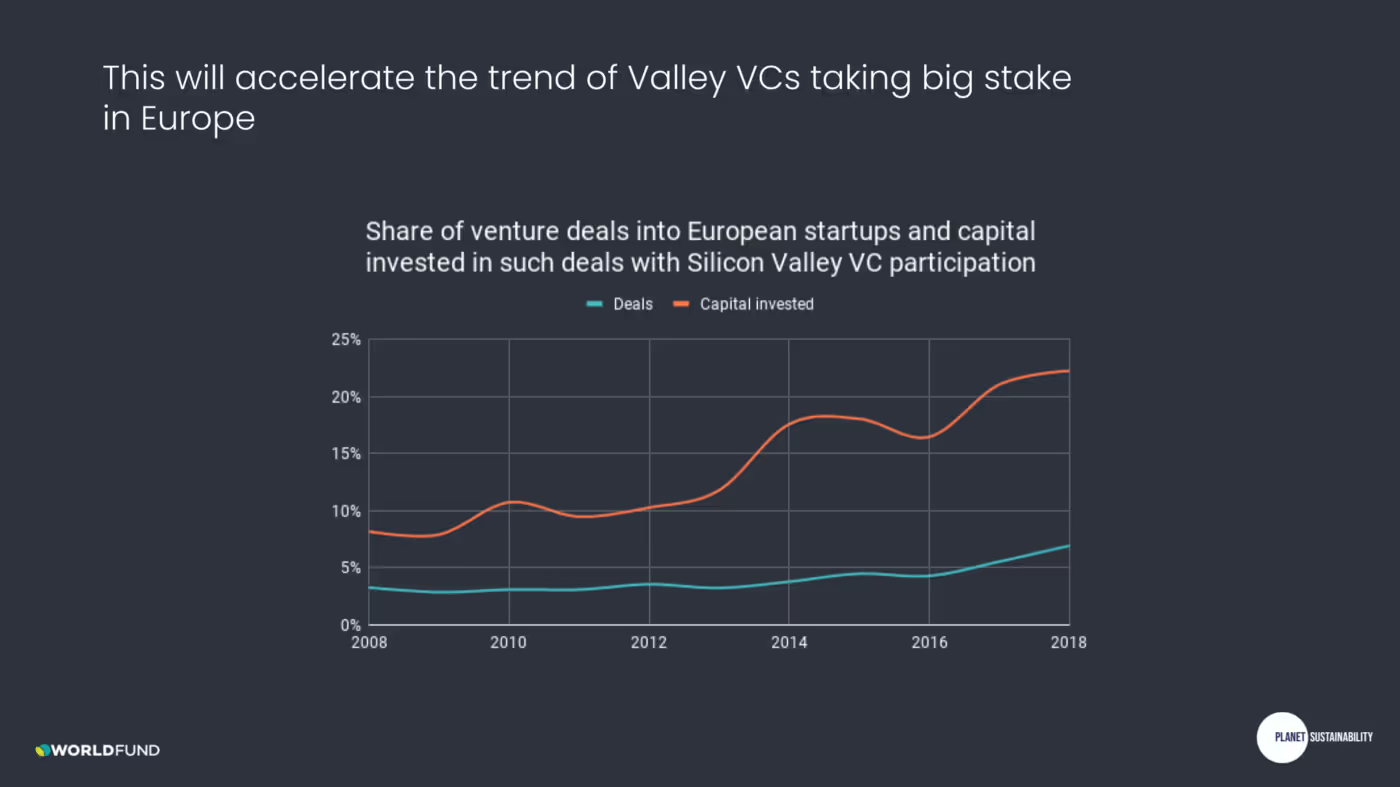
So we need to ask ourselves: how we want to bring solutions from lab to market? Who do we want in charge of that? And how are we going to build our next generation of business as part of this huge emerging market and of our new economy?

If you’re interested in these questions and want to get beyond talking with me, feel free to get in touch or follow me on social media @visevic.



.svg)
.svg)




.jpg)


.svg)



.jpg)